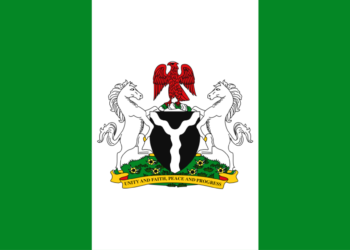To revitalize Nigeria’s economy and address insecurity at its core, the National Economic Council (NEC) endorsed the creation of a Cotton, Textile, and Garment Development Board, coupled with new plans for agribusiness growth and livestock sector reform.
The initiative is expected to yield up to $90 billion in economic impact by 2035.
Stanley Nkwocha, Senior Special Assistant to the President on Media & Communications (Office of the Vice President), announced that the CTGDB will be based in the Presidency and financed through the Textile Import Levy collected by the Nigeria Customs Service (NCS).
The NEC meeting, led by Vice President Kashim Shettima and attended by Nigeria’s 36 state governors, also endorsed the establishment of a national office for the Green Imperative Project (GIP) in Abuja, with regional offices across the six geopolitical zones, to tackle crises stemming from the current animal husbandry practices.
The CTGDB board will include representatives from the six geopolitical zones, alongside the ministers of agriculture and food security, budget and economic planning, and industry, trade, and investment.
Additional measures approved include the GIP’s national and regional offices and strategies to address challenges in animal husbandry.
Shettima emphasized that the CTGDB supports President Bola Ahmed Tinubu’s economic renewal vision, aiming to revive a sector that once drove Nigeria’s economy and provided for its people.
“Nigeria has the potential to grow cotton in 34 states, yet we produce only 13,000 metric tons and import textiles worth millions,” Shettima noted. “This is an economic misstep we must correct. Our aim is not just oversight but a full revival, re-industrializing Nigeria, empowering communities, and boosting local production.”
The NEC also reviewed the Federal Ministry of Livestock Development’s “Nigeria Livestock Growth Acceleration Strategy,” which builds on the National Livestock Transformation Plan (2018–2028). The strategy focuses on modernizing the livestock sector, prioritizing cattle ranching, and fostering peacebuilding efforts.
WHAT YOU SHOULD KNOW
The NEC’s approval of the Cotton, Textile, and Garment Development Board, Green Imperative Project, and Nigeria Livestock Growth Acceleration Strategy represents a bold attempt to reposition Nigeria’s economy and address insecurity through targeted sectoral reforms.
By reviving the textile industry, modernizing agriculture, and tackling farmer-herder conflicts, Nigeria aims to diversify its economy, create jobs, and foster peace.
If executed effectively, these initiatives could transform Nigeria’s economic landscape, positioning it as a leader in African industrialization and sustainable development.
ALSO READ TOP STORIES FROM VERILY NEWS


















